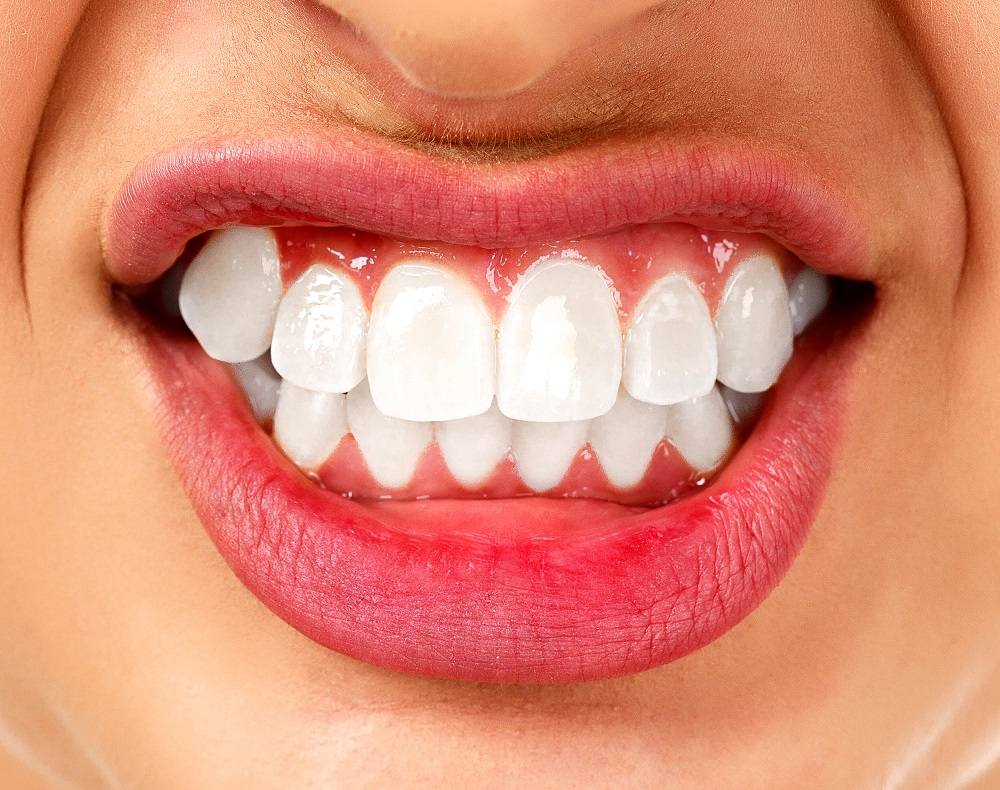Since bruxism often occurs during sleep, most people are unaware of this condition. But a constant headache, dizziness or sore jaw after waking up might be symptoms of teeth grinding. Quite a few times people learn that they clench their teeth by their partners who hear them doing it at night.
Teeth grinding (due to overactive masticatory muscles) can be caused by:
- Stress (sometimes)
- Anxiety (sometimes)
- During sleep (more often):
- Abnormal bite
- Missing teeth
- Crooked teeth
- Ill-fitting denture
- Sleep disorder (sleep apnea)
Chronic teeth grinding can lead to fractured, loose or lost teeth. The condition might wear teeth down to stumps. In this case, the patient needs a crown, bridge, implant or denture. Besides the fact that heavy grinding damages the teeth and may cause tooth loss, it can also affect the jaw and change the appearance of the patient’s face. In addition, it can lead to tensions in the jaw and neck area as well as headache and tinnitus.
If a patient suffers from bruxism, the dentist usually recommends a mouth guard to protect the teeth from clenching during sleep: The teeth are separated by a protective layer which prevents tooth abrasion during teeth grinding.
If stress is the reason for teeth grinding, the patient should talk to the doctor and consider stress reducing measures, such as stress counseling, physical therapy, sports, e.g. yoga, taking muscle relaxants, etc.
In case a sleeping disorder causes bruxism, this disease has to be treated first in order to reduce or eliminate the teeth grinding.
Other preventive measures to stop bruxism:
- Less or no caffeine
- No alcohol
- No chewing on pencils or other uneatable objects
- Self-observation and training during the day: If you notice bruxism during the day, position the tip of the tongue between the teeth. In this way, the jaw muscle is trained to relax.
- During sleep at night: A warm washcloth against the cheek in front of the earlobe helps the jaw muscles relax

